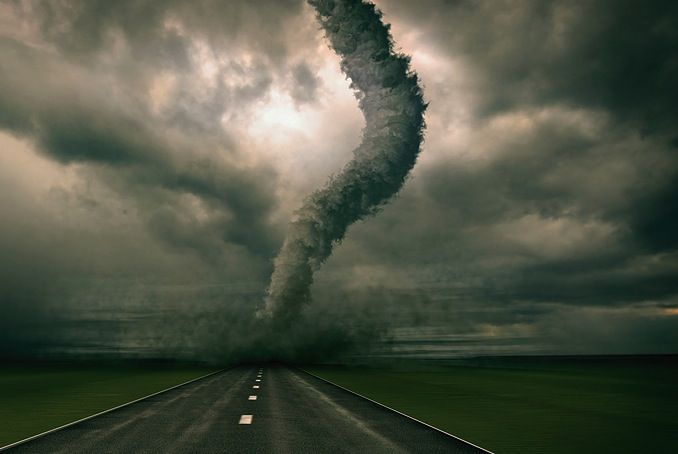
“It Could Never Happen to My Business”
Many self-employed business owners think that “it couldn’t happen to me” when it comes to disaster, but the truth of course is that it can. A friend named Stan lost his business in Hurricane Katrina and he’s living proof that it’s smart business to hope for the best, but to be prepared for the worst.
Stan and I met at an event where I was giving a speech. When he learned that I run an informative website for the self-employed, he really wanted to share his story and in the process help other freelance business owners avoid his unenviable fate.
Stan is an accountant who kept all of his records on the computer at his office. That included client tax returns, client lists, his own business records — the whole shebang. Unable to get to his office once the hurricane hit, Stan not only lost his data and computer in the disaster, but all physical files and other records too. He lost his entire business.
“Please, tell your readers to just take some basic steps that can ensure that their businesses can survive a disaster,” Stan insisted.
Preparing for the Worst That Can Happen to Your Business
While no one likes to think about what can go wrong, it behooves us all to take some basic steps to avoid the avoidable. And of course it is not just hurricanes that are a threat to a business — it could be any number of other natural disasters — earthquakes, tornadoes, floods, fire — as well as personal disasters — a stolen computer, a hard drive that crashes (try losing three chapters of a book you are writing!), a power outage.
Consider these sobering facts:
- About one-third of small businesses say they backup their data rarely, if at all. Most of the rest did it less than monthly, and yet 70% of small, freelance businesses that suffer a major data loss will go out of business within a year.
That said, the worst case scenario can be averted with some foresight and planning. Here is what you can do:
- Of course, the easiest and most obvious preventive measure you can take is simply to have enough insurance. Insuring your premises, property, and against business losses is just plain smart.
- Backup your data, and not just in the same location, but remotely.
- Important documents should be kept in a fireproof safe.
- Software should be utilized to prevent viruses and malware from destroying your hard drives.
- Create a plan to keep things running if something should happen. Assign roles and responsibilities as a part of that plan and walk through them with employees. Then keep the plan updated.
Hurricane Katrina was a tough lesson for too many self-employed business owners. Let Stan help you to help yourself. Make sure you are properly insured and create that disaster preparedness plan today.








